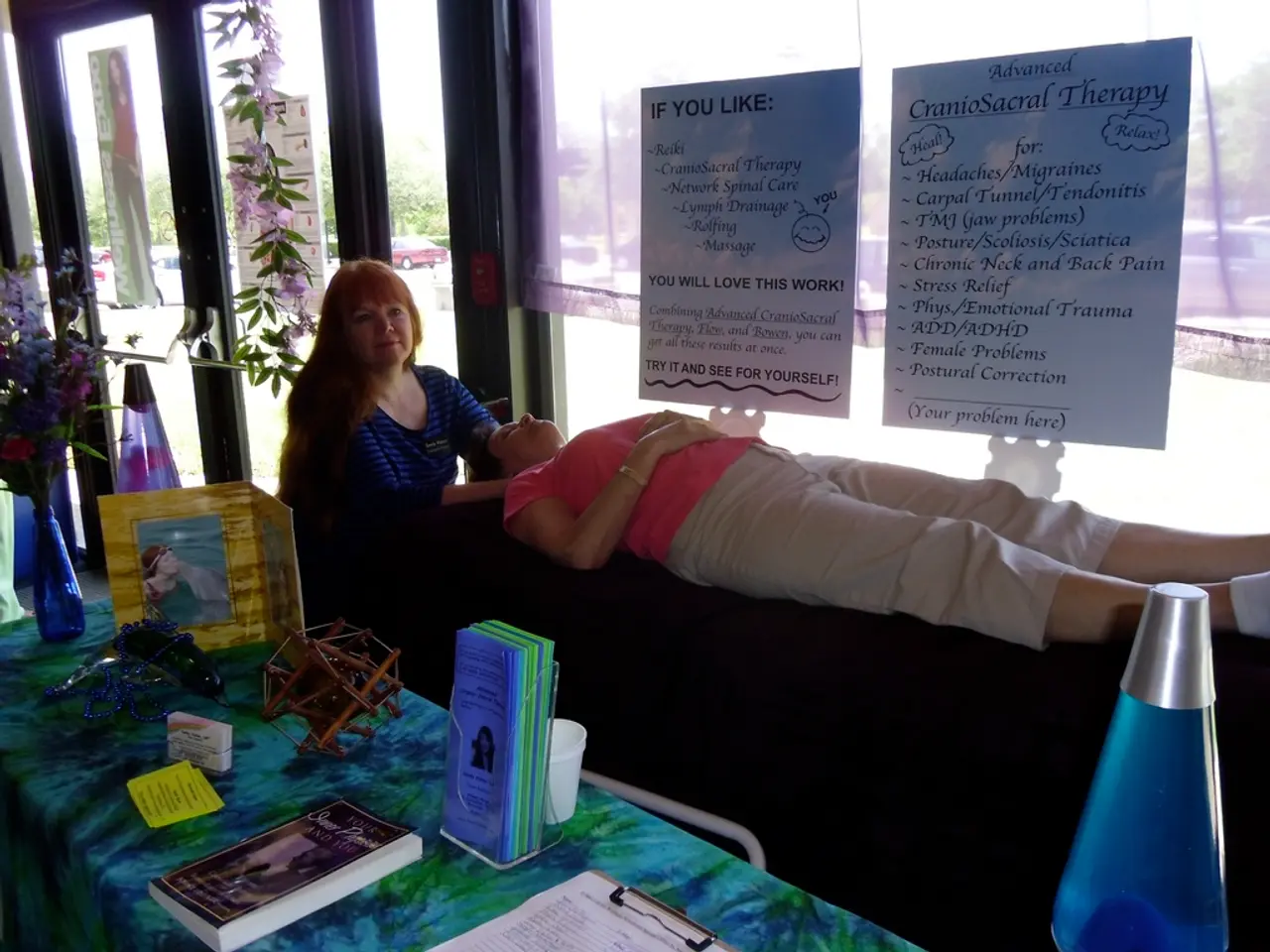Self-Compassionate Care: The Groundbreaking Science of Self-Nurturing Recovery
Emotional wounds, such as rejection, loneliness, failure, and rumination, can leave deep scars that impact our lives. However, a new approach, Emotional First Aid, offers a solution to treat these emotional injuries with the same care as physical ones. This approach, outlined in Dr. Guy Winch's book Emotional First Aid, provides specific strategies and techniques to foster healing and resilience.
Key Methods of Emotional First Aid
Dr. Winch's approach to Emotional First Aid involves four core areas: loneliness, rejection, failure, and rumination. To address these emotional wounds, the following strategies and techniques are recommended:
- Acknowledging and addressing emotional pain promptly: Ignoring or suppressing emotional pain can exacerbate its impact. Instead, it's crucial to address it head-on.
- Challenging unhelpful or distorted thoughts: Negative emotions often stem from unhelpful or distorted thoughts. Techniques like cognitive restructuring can help replace these thoughts with more positive, balanced perspectives.
- Practicing self-compassion: Treating oneself kindly, as one would a hurt friend, is a cornerstone of Emotional First Aid.
- Using emotional regulation techniques: Techniques like naming emotions, deep breathing, grounding exercises, and cognitive restructuring can help manage overwhelming feelings.
- Building and leveraging social support: Combating loneliness and fostering emotional safety is essential. This can be achieved by engaging in activities that promote emotional healing, such as journaling, affirmation use, and creating an emotional emergency toolkit.
- Engaging in activities that promote emotional healing: For rumination and failure, interrupting negative thought cycles through mindfulness and cognitive techniques can help reduce chronic dwelling on distress.
- When trauma or deep wounds underlie emotional pain, therapeutic approaches like EMDR, somatic experiencing, and writing therapy are effective to process and integrate painful experiences in a controlled manner.
Strategies for Specific Emotional Wounds
| Emotional Wound | Specific Strategies and Techniques | |-----------------|-----------------------------------| | Rejection | Self-compassion, social support, cognitive restructuring of rejection thoughts, grounding techniques to manage overwhelm | | Loneliness | Building healthy relationships, avoiding isolation, engaging in group activities, emotional expression and validation | | Failure | Challenging distorted thinking, self-kindness, mindfulness to reduce rumination, using failure as feedback | | Rumination | Interrupting negative thought cycles with mindfulness, distraction, and cognitive reframing; journaling feelings; emotional emergency toolkits |
The Importance of Emotional Health
Emotional health is as critical as physical health, as our emotions inform decisions, shape relationships, and influence overall well-being. Untreated emotional wounds can lead to mental health challenges like depression, anxiety, and chronic stress. Regular physical activity has been shown to improve mental health by releasing endorphins, reducing stress, and promoting a sense of well-being.
Practicing self-compassion when feeling down involves acknowledging pain without judgment and speaking to oneself with encouragement and love. When faced with rejection, it's important to remember that it's not a reflection of your inherent value and to rethink rejection as a learning experience. To break the cycle of rumination, Dr. Winch recommends practicing mindfulness and cognitive reframing.
Engaging in regular self-care, patience, and self-compassion throughout the healing process is key. Emotional First Aid provides a science-backed practice that offers strategies for healing emotional wounds such as rejection, loneliness, failure, and rumination, fostering healing and resilience rather than neglect or suppression.
- Cultivating emotional health is as vital as maintaining physical health, as our emotions play a significant role in decision-making, relationship-building, and overall well-being.
- Regular exercise, known for releasing endorphins and reducing stress, can positively impact one's mental health and promote a sense of well-being.
- Emotional First Aid, with its science-backed strategies, can aid in healing emotional wounds like rejection, loneliness, failure, and rumination, by promoting healing and resilience instead of neglect or suppression.
- To practice mindfulness when dealing with intense emotions, such as those arising from rumination, one can employ cognitive reframing, along with journaling feelings and utilizing an emotional emergency toolkit.




